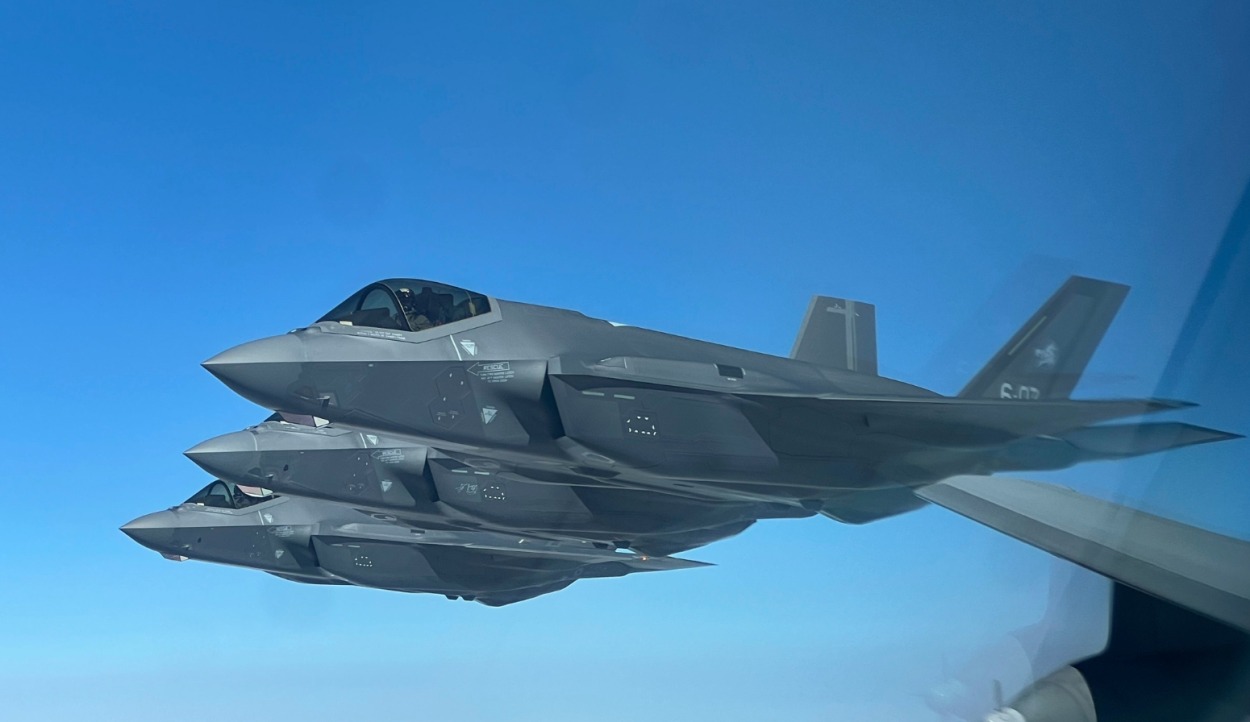Greece has officially signed an agreement to procure 20 F-35A Joint Strike Fighters, marking its entry as the 19th country to operate the advanced fifth-generation jets developed by Lockheed Martin.
Greece’s defense minister, Nikos Dendias, made the announcement, hailing the deal as a significant step in modernizing the nation’s air force.
“Greece is building powerful armed forces by purchasing the most modern combat aircraft in the world,” Dendias said, according to a translation from state-owned public media EPT News.
The deal, valued at $3.76 billion, provides a substantial modernization boost for Greece’s air force, which will replace its aging fleet of F-4 and Mirage 2000 aircraft.
The US State Department had cleared Greece in January to purchase up to 40 F-35A jets, with an estimated total cost of $8.6 billion. For now, the agreement covers the acquisition of 20 jets, with deliveries slated to begin in 2028 and continue through 2033. The aircraft will be stationed at Andravida Air Base in Greece.
In addition to the aircraft, the deal includes comprehensive support elements such as the training of flight engineers in the United States, the establishment of flight simulators in Andravida, and initial technical support.
Athens retains the option to order an additional 20 F-35 jets, with plans to exercise this option after 2030.
“We are excited to welcome Greece into the F-35 enterprise,” said Air Force Lt. Gen. Mike Schmidt, director and program executive officer of the F-35 Joint Program Office. “The F-35 will provide exceptional capability to the Hellenic Air Force, build interoperability between our allies, and strengthen the combat effectiveness of all NATO forces.”
Lockheed Martin further emphasized the F-35’s role as a cornerstone of NATO’s air power.
The manufacturer said in a statement, “The F-35 is rapidly becoming the NATO standard fighter of choice, offering unparalleled interoperability with NATO and other allied assets. This capability stands as a significant advantage for the US and its allies, ensuring strategic superiority for decades.”
By the 2030s, more than 600 F-35s are projected to be operational in over 10 European countries, including two full US F-35 squadrons stationed at Royal Air Force Lakenheath in the United Kingdom.
Currently, the F-35 operates from 32 bases worldwide, with 10 nations operating the jets on their home soil. Nearly 1,000 F-35s are in service, having accumulated over 860,000 flight hours fleetwide.
Greece’s Acquisition Of F-35 Jets Might Escalate Tensions With Turkey
Greece’s acquisition of F-35 fighter jets is a politically charged issue due to the longstanding tensions between Greece and Turkey, both NATO members. Turkey was previously part of the F-35 program but was expelled after it purchased Russian S-400 air defense systems.
The United States Defense Security Cooperation Agency (DSCA) approved the sale of F-35A fighters to Greece on January 26, 2024. On the same day, Turkey received approval to purchase 40 Lockheed Martin F-16 Vipers.
The DSCA endorsed these sales, highlighting that they would enhance the air capabilities of both nations, contribute to NATO missions, and bolster regional security. The F-16 Viper and F-35A Lightning II are expected to provide modern, upgraded capabilities to the Greek and Turkish air forces, respectively.
For Greece, acquiring the F-35s represents a significant diplomatic achievement, enhancing its defense stature with the world’s most advanced fifth-generation aircraft. Conversely, Turkey perceives Greece’s possession of F-35s as a major security threat.
The strained relations between the two countries were underscored recently when Greek Health Minister Adonis Georgiadis made provocative comments about using the F-35 against Turkey.

In a broadcast interview, Georgiadis boasted about Greece’s expanding arsenal, including F-35s, F-16 fighter jets, and frigates, as well as its alliances with the US and France.
“With F-35s, we can go to Türkiye one night. One night, you will suddenly find them in Ankara. I am not saying we will actually do it, but Türkiye should know that they have nothing when it comes to aviation (capabilities of Greece),” he said.
Greek media also quoted him saying that Turkey and Greece would either engage in dialogue or face conflict.
These remarks come amid renewed tensions between Greece and Turkey over Turkey’s 1974 military operation in Cyprus. Each side has accused the other of misrepresenting the events and background of the intervention as the 50th anniversary of the operation approaches.
The 1974 invasion resulted in the division of Cyprus into two parts: the southern part, inhabited mostly by Greek Cypriots and governed by a UN-recognized administration, and the northern part, the self-proclaimed Turkish Republic of Northern Cyprus, recognized only by Turkey.
The acquisition of the F-35s by Greece, therefore, not only enhances its military capabilities but also heightens the geopolitical tension in the region, reflecting the complex and often contentious relationship between these two NATO allies.
- Contact the author at ashishmichel(at)gmail.com
- Follow EurAsian Times on Google News




